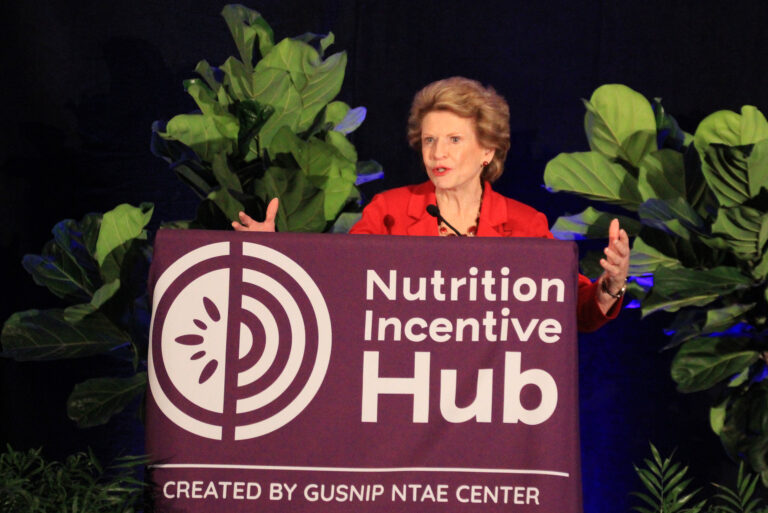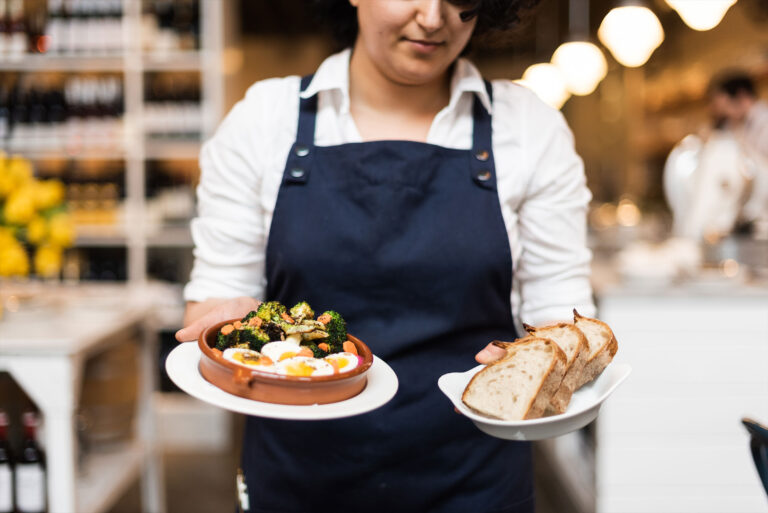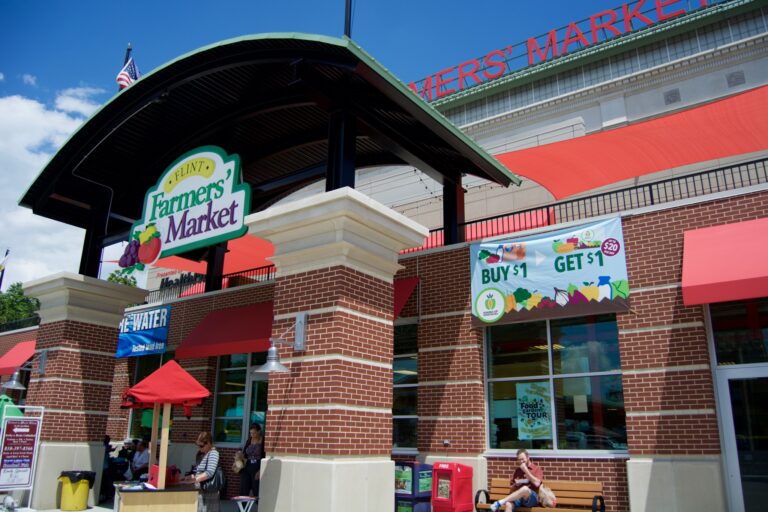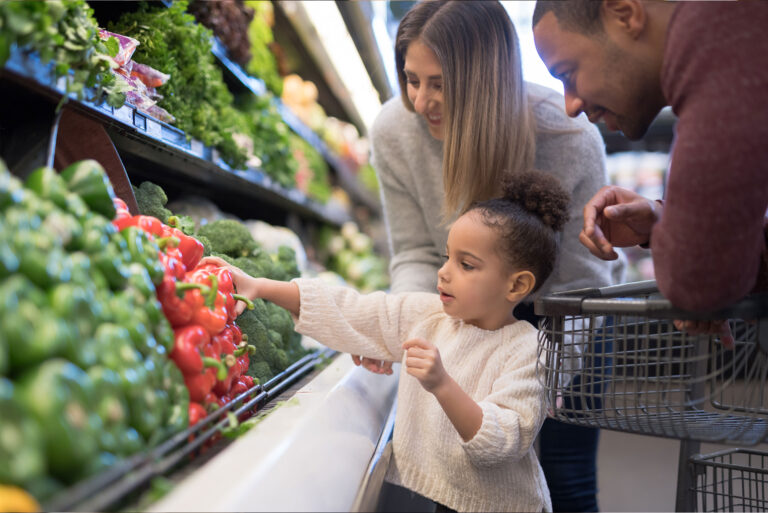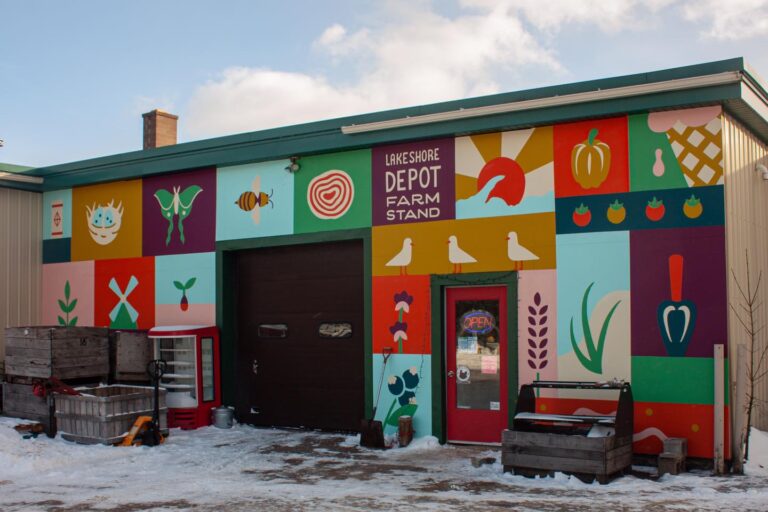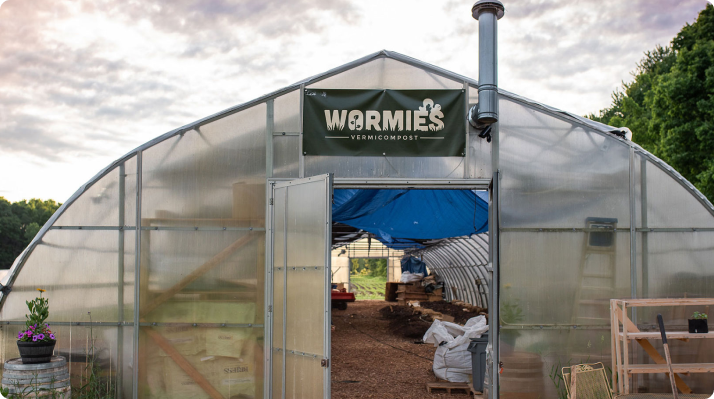2023
Fair Food Network
IMPACT REPORT
A letter from our CEO
In the midst of turbulent times, finding common ground is more critical than ever. We must continue to strive to bridge gaps and unite around shared goals, even among differing interests and viewpoints.
Food has always been a unifying force, and at Fair Food Network, we remain focused on our commitment to building community health, wealth, and long-term resilience. Our focus extends beyond mere sustenance; we’re dedicated to fostering vibrant communities and cultivating an approach to food and farming that benefits us all.
In 2023, we made significant strides by prioritizing collaboration and coalition-building.
On a national scale, we formed and led a coalition dedicated to expanding the federal government’s commitment to healthy food access as Congress considers an updated Farm Bill. We also continued our partnership in the Nutrition Incentive Hub, where we lead technical assistance activities to advance nutrition incentive and produce prescription programs across the country.
Our ability to be successful in these national systems-change activities is rooted in the success of our Double Up Food Bucks program. This initiative continued to help hundreds of thousands of struggling Michiganders bring home more healthy fruits and vegetables, while also investing in locally owned retail groceries and local farmers markets.
As administrators of the Michigan Good Food Fund, we continue to collaborate closely with community-driven leaders to support statewide local food and farm entrepreneurs. We recently selected the winners of our inaugural Seed Awards – underlining our commitment to grow Michigan-based food businesses and support the next generation of entrepreneurs.
We relocated our headquarters from Ann Arbor to Detroit in 2023 and we’ve enjoyed growing deeper connections in the city. While our physical location may have changed, our mission remains constant, as we continue to create positive change in communities across Michigan and the country.
As we forge ahead, we’re collectively reshaping the flow of resources within the food economy. Your support fuels our belief in a brighter, fairer future through food. Thank you for joining us on this journey.
EXPLORE OUR HIGHLIGHTS
Our Impact by the Numbers
Total hours of technical assistance provided to food businesses and organizations in 2023
Total dollars invested into communities by Fair Food Network
We know that farmers and local food businesses are engines for positive change, so we support and invest in their success. Our work focuses on shifting how essential resources flow through the food economy, building equity in communities across the country.
EXPLORE OUR HIGHLIGHTS
By The Numbers: Double Up Michigan
14 YEARS OF IMPACT
Combined SNAP & Double Up sales
Pounds of healthy food purchased with SNAP & Double Up
Double Up sites in Michigan (unique sites since 2009)
Double Up sites in Michigan (unique sites currently participating in DUFB)
2023 IMPACT NUMBERS
$9.9M
Combined SNAP and Double Up sales of fruits and vegetables
237
Double Up sites, including 113 grocery stores and 124 farmers markets
213,861
SNAP households reached
96%
of Michigan's population lives in a county with a Double Up site
791+
Michigan farmers benefited
$7.8M
Amount of produce purchased by independent grocers
FEATURED INVESTMENTS
Fair Food Fund Financial Overview
Financing Committed
(through Dec. 31, 2023)
Financing Outstanding
Investment Income
Total Investments (Since Inception)
Default Rate (as of Dec. 31, 2023): The annualized default rate since the Fund’s inception (2012) is .64%, or 7.2% cumulatively
Type of Business
Type of Structure
Amway
Ann Arbor Area Community Foundation
Anonymous
Bank of America
CapShift
Charles Stewart Mott Foundation
Chordata
Clif Family Foundation
Community Foundation of Greater Flint
Community Foundation for Southeast Michigan-New Economy Initiative
Dalio Philanthropies
DTE Energy Foundation
Elmina B. Sewall Foundation
Ford Motor Company Fund
J.M. Kaplan Fund
Kresge Foundation
Max M. & Marjorie S. Fisher Foundation
Michigan Department of Agriculture & Rural Development (MDARD)
Michigan Health Endowment Fund
Mighty Arrow Family Foundation
Natural Investments, LLC
New York State Health Foundation
Oakland County Health & Human Services
Oppenheim Family Charitable Fund
Ralph C. Wilson, Jr. Foundation
Ruth Mott Foundation
Surdna Foundation
Swift Foundation
The Indigo Revocable Trust
United States Department of Agriculture (USDA)
United Way for Southeastern Michigan
W.K. Kellogg Foundation
You Have Our Trust Fund of New Hampshire Charitable Foundation
INDIVIDUAL DONORS
$5,000 and above
Robert Dannin and Jolie Stahl Household
Hamp Family Fund
Kiff and Nikki Hamp
Oran Hesterman and Lucinda Kurtz
Jenifer Martin and Mark Fendrick
Up to $4,000
Ken Fisher
Randy and Patty Horton
David Fukuzawa and Toni Kovach
TisBest Philanthropy - Anonymous
Pierre Tonachel
John Stewart and Ramon Torres
Matt and Sarah Wixson
Up to $2,500
Gary W. Appel and Mimi L. Appel
Carl Davis
R.A. Dinkel & Associates, Inc.
Judy and Paul Freedman
Mark Haubert
Kate Krauss
Sally Martin
Jay Rosen
Dan and Bonnie Warmels
Up to $1,000
Martha Bashore
Dean Cady
Stephanie Doll
James Ellis
Naomi Harrison
Greg and Barbara Houghtaling
India Foundation
Leon & Marlene Leonardo Charitable Fund
Gary McRay
Lessa Phillips, MD, MPH
Mike and Susan Stanley
Megan and Marcus Thygeson
Joe Turgeon
Doug Weber
Jeffrey Yurkanin
Up to $500
Benevity
Kellie Boyd
Timothy Donovan
Cassandra Fletcher-Martin
Noah Fulmer
Iris and David Horner
Jewish Community Foundation of Greater Ann Arbor
Janet and Andy Katz
Thomas Massengale
Peter and Deb Nathan
Ricky Norris
Madeline Smith
Stephanee Strasburg
Wilson Taylor
United Way for Southeastern Michigan
Tyler Vens
Up to $100
Cindy Bank
Jon Biedermann
Joe and Julie Damore
Mary Jo Eyster
Bob Foote
Kat Forsythe
Gary & Laura Gallerstein
Randy and Andrea Gerber
Jay Gill
Timothy Gilson
Laureen Huff
James Ella James
Rachel Maciejewski
Andi Nank
Paulo Neuhaus
Pamela Ochs-Sandberg
Kristin Palm
Katherine Patterson
Percolator Consulting
Lisa Pierce
Bonnie Reece
Timothy Richards
Rindy Root-Kolic
John Roberts
Jared Sandberg
Nicki and Nolan Sandberg
Gail Shumway
Sarah Spratt
Barbara Stanford
Susan Stone
Bahira Sugarman
Shane Sullivan
Sara Wellman
David Williamson
Uncommon Charitable Impact
Suzanne Zelnik Geldys
Stay In Touch
Thank you to the report's writer, Adam Robson; designers at Loop: Design for Social Good; photography courtesy of Fair Food Network and/or subjects; and cover art by Voodo Fé.







